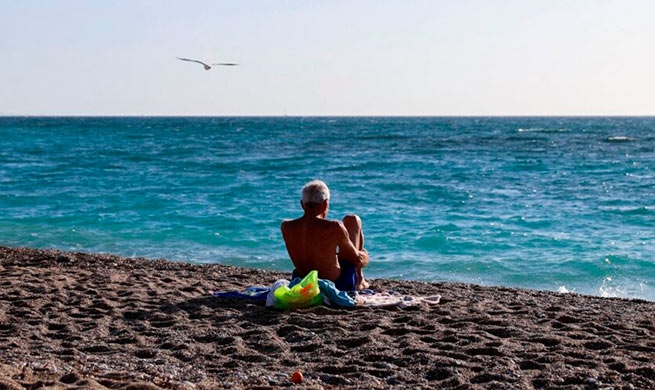Athens is full of foreign tourists. You see them on the narrow streets in the center of the city, but also suddenly walking around the outskirts, with a smile from ear to ear, slipping between cars parked on the sidewalks.
Some of the most popular Greek destinations are already packed foreign tourists. Others are just gathering, and in the news reports the authorities celebrate another triumphant season. But behind the scenes there is something much more complex. You’ve probably heard people talk about how prices for ferries, hotels and rooms for rent are high this year.
Nearly half of Greeks can’t afford a week-long vacation this summer, according to a recent study. Of those who are going on vacation, about half will live with friends or in their own dachas. This is not accepted. This is an obvious trend. It paused briefly during the pandemic, but is now making a comeback as the Greek tourism product is increasingly geared towards foreign travelers. The concept of a Greek summer, a long vacation in a beautiful place, is slowly becoming an unattainable dream for most.
How did it happen? How did “Greek summer” suddenly become a product exclusively for foreign travelers, too expensive for locals, as it is in other places in developing countries such as Bali, the Seychelles and the Maldives? The main increase in the number of foreign tourists over the past decade is due precisely to the fact that the number of people traveling to foreign countries has increased dramatically and rapidly. It’s an explosion that has led to all the different problems we’ve seen around us in the last few years: neighborhoods where locals once lived are being taken over by Airbnbs; soaring rents are crowding out local residents; erosion of the character of popular places; deterioration in the quality of life of the remaining residents.
Greek summer is part of our identity. Like a horiatiki salad, like a complaint against a judge, and like illegal parking “for a minute”
Even worse, in places not designed to receive a large number of tourists, the infrastructure is being destroyed at the same time. Even if on some island with 2,000 inhabitants an airport was repaired, even if more sleeping places were added, even if workers were found – domestic or foreign – to service all these new housing units, the road network, power supply systems, water supply, sewerage and waste disposal is still calculated, at best, for 2000 inhabitants.
We’ve also taken it to the next level: as locals across Greece try to use every square meter to accommodate or feed as many visitors as possible, they become immune to laws and the environment and don’t seem to notice how much worse the experience they are offer to their visitors, as well as how inevitable the collapse of the “brand” that offers the direction becomes. Approaching tourism development as a means to making big money fast can be expected in a business environment where everything is viewed opportunistically and shortsightedly. But nonetheless, it is a tragedy that is unfolding before our very eyes and that is being recounted in articles, stories, and TikTok videos by frustrated influencers.
And here lies the problem: if we lose the “Greek summer”, what will be left? Who are we?
Foreign tourists want to come here to experience the Greek summer, just like we did a few years ago. It’s not about imitation or marketing – it’s just a great way to spend a vacation. But for us, this type of recreation is not just a habit or custom. Greek summer is part of our identity. Like choriatiki salad, like a complaint against a judge, and like illegal parking “just for a minute.” Lying on the beach, swimming in the sea, having dinner in a tavern, strolling in the afternoon in a beautiful seaside town, eating ice cream in the port – these are the experiences that many dream of, but for us it is much more. With the exception of rare sports victories, we don’t have much in common. We are a hodgepodge of families who share the same geographic space, often reluctantly. But we have summer holidays. The fact that this experience becomes more and more inaccessible to an increasing number of Greek men and women will inevitably lead to consequences. This is a collective trauma. This is another thread torn from the tattered sweater that is our identity as a nation, as a society.
PS Have you noticed the fact that even in the difficult years of memorandums, life was cheaper? True, then no one broadcast about great successes and economic growth. On the contrary, everyone complained and wept how bad life had become. Nevertheless, almost every resident of Greece could afford to go on vacation. Now, in the era of universal blessing, at least that’s what they tell us from every iron, we can’t afford it. What is going on?







More Stories
What's Happening to America's Presidential Candidates (Video)
Who is he, the killer Farion?
What's happening on Athos? Will there be an assault on Esphigmenou?